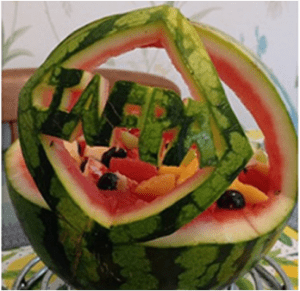
Event Summary – International Association for Forensic Phonetics and Acoustics Conference
The Research Hub for Language in Forensic Evidence took part (virtually) in a conference run by The International Association of Forensic Phonetics and Acoustics. It was hosted by the Phonetics team at Philipps-Universität Marburg (Germany), from August 23-August 25, 2021. Our feature image is of Marburg, where the conference was hosted; image is from the conference website, credit Gea DeJong-Lendle.
The Hub had a great showing at the IAFPA conference, with four presentations:
Loakes, D. and H. Fraser Assessing the role of automatic methods for the transcription of indistinct covert recordings.
You can watch the Loakes and Fraser presentation here.
Fraser, H. and Y. Kinoshita How textual priming can undermine legal safeguards intended to protect juries from misleading transcripts.
Very soon you will be able to watch the Kinoshita and Fraser presentation here.
Clements, C., D. Loakes and H. Fraser – Forensic audio in context: enhancement, suggestibility, and listener aptitude for identifying speakers in indistinct audio [this is a presentation based on Conor’s Honours thesis findings].
Fraser, H. – Updating the Likelihood Ratio debate: Behind the scenes in three Australian trials.
What is IAFPA, and the IAFPA conference all about?
The IAFPA association describes itself as “the professional association for forensic scientists and researchers who analyse voices, speech and audio recordings”. So as you can imagine, the conference covered all of these topics (as did our papers!). The conference runs annually, and has been running since 1991. There have been 29 IAFPA conferences in total, because the 2020 event did not proceed.

Highlights of the IAFPA conference
The conference schedule was packed, and started at 5.30pm Australian time, which was 9.30am Marburg time – all the Europeans were talking about coffee while the Australians were most certainly not wanting caffeine at that hour! The plenary speakers were:
Michael Jessen from the Bundeskriminalamt (Federal Criminal Police Office of Germany), whose talk was called Two issues on the combination between automatic and auditory-acoustic methods in forensic voice comparison.
Phil Rose, a fellow Australian and fellow member of The Australian Speech Science and Technology Association ASSTA, who gave a talk called Applications of the likelihood ratio framework in forensic speech science.
Yulia Oganian who is from the University of San Francisco, and who gave a talk called Encoding and decoding of speech sounds using direct neural recordings from human auditory cortex.
There were numerous other interesting talks, on a wide array of topics such as:
- a survey conduced about forensic voice recognition in China (by Honglin Cao and Xiaolin Zhang)
- a study about phonetic similarity in trademarks (by Vincent van Heuven and Sandra Ferrari Disner); and
- the final talk of the conference was called The effect of Angela Merkel on right temporal voice processing – an EEG study (by Paula Rinke, Mathias Scharinger, Kjartan Beier, Ramona Kaul, Tatjana Schmidt and Gea de Jong-Lendle).
The final programme is available here.
The Research Hub had two presentations in the scheduled talks (Fraser, and Clements, Loakes & Fraser), which were placed in the schedule at a respectable hour (first up on the 2nd and 3rd day). Helen was given some extra time in her presentation to introduce the Research Hub to the IAFPA community. The Loakes & Fraser talk, and the Kinoshita & Fraser talk, were made available as pre-recorded sessions, which is why we have links to those presentations.
And finally, for a bit of a light ending to this post – the IAFPA conference also had some conference experiences (virtual of course). There was a Zumba session or two, as well as a virtual beach and spa through the Gathertown conferencing platform where delegates could meet one another for a chat. Dinner was supposed to take place in Marburg castle, but given the current situation with CoVID this was not possible, however the conference dinner did apparently go ahead (!!). While the Australians did not take part (given the timezone difference, we were sleeping) there was a menu posted, for delegates to attempt to make their own conference meal. This consisted of recipes for a four course meal of Mulligatawny soup, North Sea haddock, creamy Champagne chicken, and fruit salad – all paired with different alcoholic beverages. And apparently there was also a dinner award for the best meal, no doubt judged by photographic evidence rather than taste.

For anyone reading this who has interest in the subject matter covered at IAFPA, the journal International Journal of Speech, Language and The Law (IJSLL) focuses on the kinds of material presented at this conference (it is the journal of the IAFPA). Helen has been a regular contributor to this journal, for example with a paper on the interpretation of a crisis call, and another called The role of ‘educated native speakers’ in providing language analysis for the determination of the origin of asylum seekers. Additionally, Debbie’s PhD thesis abstract was also published in this journal.